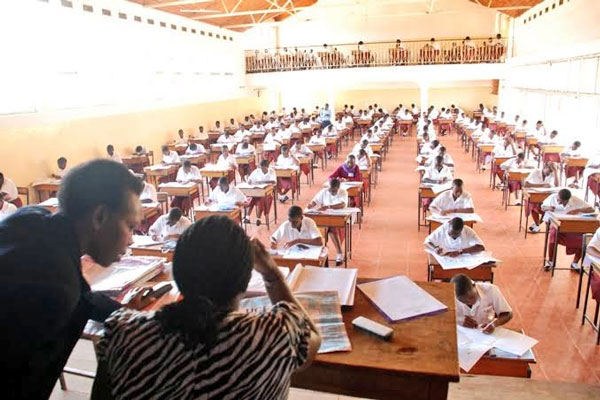
Kampala, Uganda | THE INDEPENDENT | Janet Museveni, the Minister of Education and Sports, has said that the government is going to scrap the automatic promotion policy with the aim of reducing the number of ungraded candidates in final national examinations.
The First Lady made these remarks on Thursday while releasing the results of the 2023 Primary Leaving Examinations. She expressed sadness at the high number of ungraded learners and emphasized that progressing a learner to the next class before attaining the minimum competences and skills in the current class is a disservice.
According to the Uganda National Examination Board’s statement on the just released PLE results, 88,269 candidates, constituting 10.4 percent of the total candidates, were ungraded. In simpler terms, these candidates failed to reach the minimum level of performance required to be awarded at least a Division 4, making them ineligible for admission to Senior One.
The minister emphasized the importance of addressing the root causes of failures. In her view, automatic promotion could be a contributing factor, as learners have been progressing to the next class without acquiring the necessary competence. This, she believes, increases the likelihood of encountering challenges and failing at the P7 level.
She further directed that the Directorate of Education Standards should build the capacity of schools to utilize formative assessment because promoting a learner to the next class simply because the year has ended is a disservice to the child and to the education sector.
Filbert Baguma, the General Secretary of the Uganda National Teachers Union, says the decision by the minister was long overdue, as the automatic promotion policy was self-defeating and negatively impacting the quality of education.
“We all know that a learner must attain the required competence before moving to the next class, but our dear government had overlooked this,” noted Baguma. “Now they have realized that it doesn’t give result.”
Baguma further criticized the policy, pointing out that after being automatically promoted from lower classes to P7, learners were then cut off, making them unable to access secondary education without passing PLE thus dropping out of school.
Before the policy is reviewed, the minister emphasizes the need to provide a pathway of hope for those who have failed this year’s examination. For instance, the minister noted that they can be assisted by repeating Primary Seven.
Automatic promotion was adopted in 2005 as part of a broader national education strategy aimed at enhancing internal efficiency in basic education to increase retention and address issues of school dropout and repetition, which were causing substantial costs for the government.
However, many educationists opposed it then, and some private schools chose not to implement it. Local governments like Mpigi District even banned it in their public schools as a means of fostering better performance.
A 2017 report titled “Governance of UPE in Uganda and its Implications for National Development,” commissioned by Advocates Coalition for Development and Environment (ACODE), highlighted that automatic promotion doesn’t give weak students a chance to improve or challenge themselves.
The report further asserted that the automatic promotion policy has fallen short of its intended goal to keep children in school. It criticized the arrangement, highlighting that evaluation, which is a fundamental aspect of learning, is compromised by automatic promotion.
UNEB records show that there are districts that consistently post ungraded results, and they have featured again this year. For instance, Kibuku and Madi Okollo districts had over 31.5 percent of their candidates ungraded, while Dokolo had 28.4 percent and Namisindwa 28.9 percent. However, many other districts have 20 percent of the candidates in Division U.
Meanwhile, Professor Celestino Obua, the UNEB chairperson has noted that the board has also taken a keen interest in candidates who are under-performed, and they will soon carry out a detailed analysis of districts and schools where performance has been consistently low over the years.
The proposed review of the policy comes at a time when many other educationists are advocating for the entire assessment framework to be scrapped. They argue that reducing the authority vested in the national examination body in favor of school-based continuing assessment would be a better way to monitor the performance and progression of learners.
****
URN
The post Automatic promotion to be scrapped to halt increase in UNEB exam failures appeared first on The Independent Uganda:.



